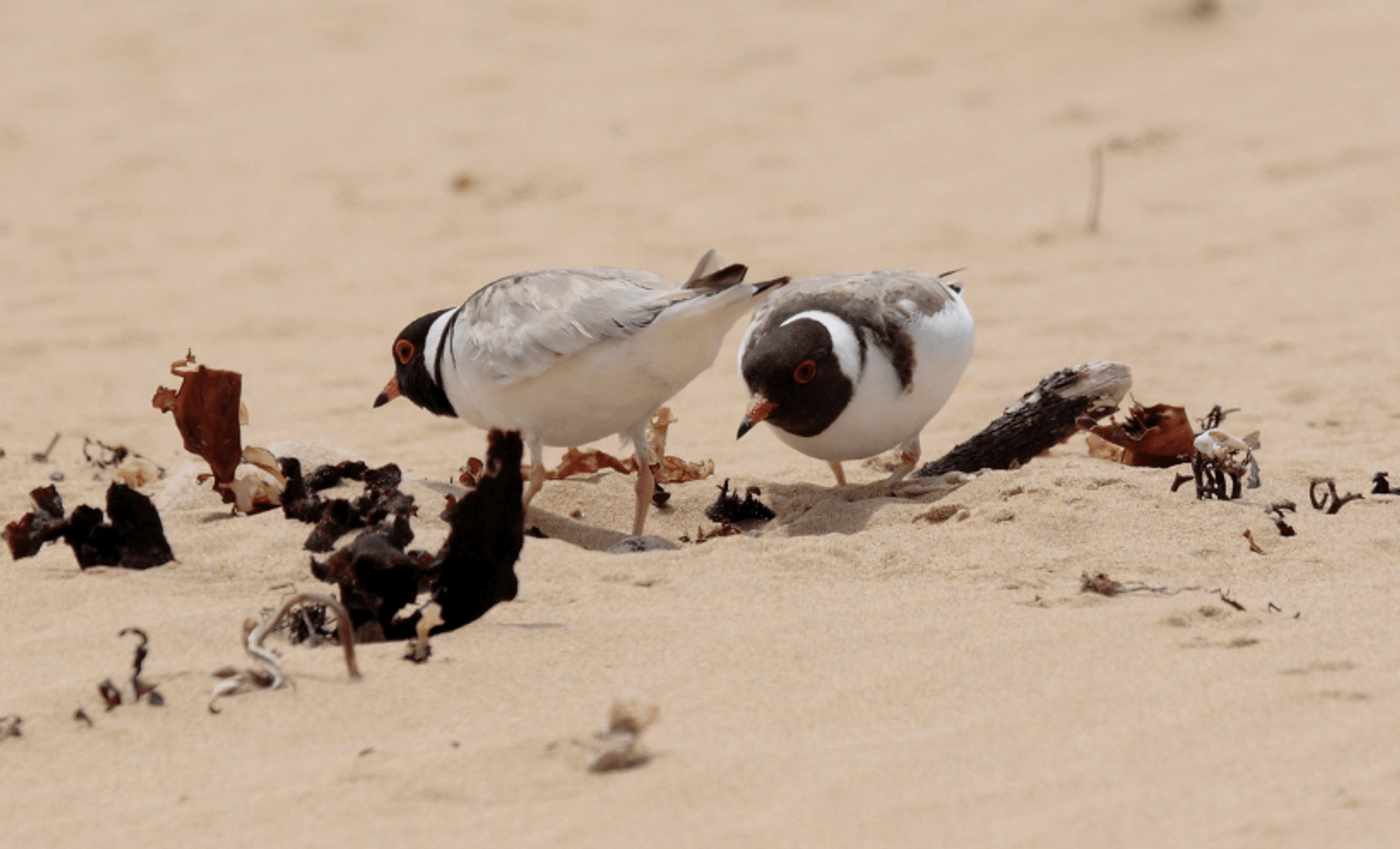- Published:
- Tuesday 12 October 2021 at 9:52 am

Conservation Regulator Officers and Parks Victoria Rangers are patrolling local beaches to protect the threatened species and raise awareness of how beach users can help the plight of the beach-nesting birds.
As hooded plovers lay their eggs in shallow sand scrapes from August to March, their nesting season overlaps with the warmer months when beaches are at their busiest.
Hooded plovers have a high rate of nest failure, with the eggs easily trampled on by beach users and wayward dogs.
If an incubating adult bird is scared away from its nest by passers-by or dogs, its eggs can bake in the sun or become too cold in the cool weather. This results in the death of the chick developing inside the egg.
Officers and Rangers are encouraging people to take note of signage at beaches advising of hooded plover nests, give the birds plenty of space and keep dogs away from fenced-off nesting areas.
During the nesting season the Conservation Regulator and Parks Victoria will have a presence at beaches from Portland to Ocean Grove, the Mornington Peninsula, South and East Gippsland, and Wilsons Promontory.
The timing and locations of patrols will be based on data provided by BirdLife Australia, which coordinates the monitoring of hooded plovers along Victoria’s coastline.
Last breeding season BirdLife recorded 1,003 hooded plover eggs along Victoria’s coastline. 185 hatched and only 66 chicks survived to become juveniles.
The Conservation Regulator investigates reports of dogs harassing hooded plovers. Reports can be made to Crime Stoppers on 1800 333 000.
“Small changes to behaviour on beaches can help hooded plovers as they face the challenge of nesting while sharing their habitat with beachgoers.”
“If beach visitors could do their best not to disturb nesting hooded plovers and keep their dogs on leads around fenced off habitat, it would make such a difference to the local hooded plover population.”
“The more people who know what to do when they spot hooded plovers and their nests at the beach, means the more chance these birds have of being able to raise little families.”
“At this time of year our volunteers are putting up signage and fencing around hooded plover nests, as the eggs – which are speckled, camouflaged and the size of a 20-cent coin – can easily be crushed by accident.”
“We know that without human support to protect nesting birds and their eggs from disturbance, hoodies have just a 2.5% chance of surviving from egg to juvenile.”
Updated